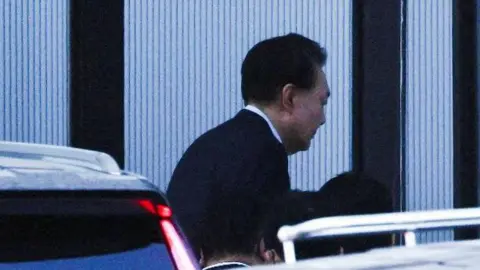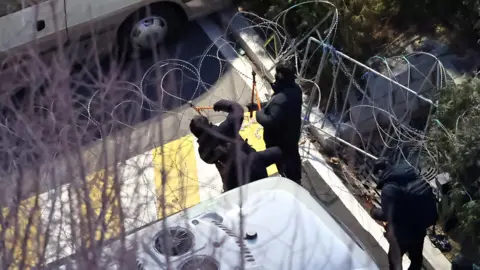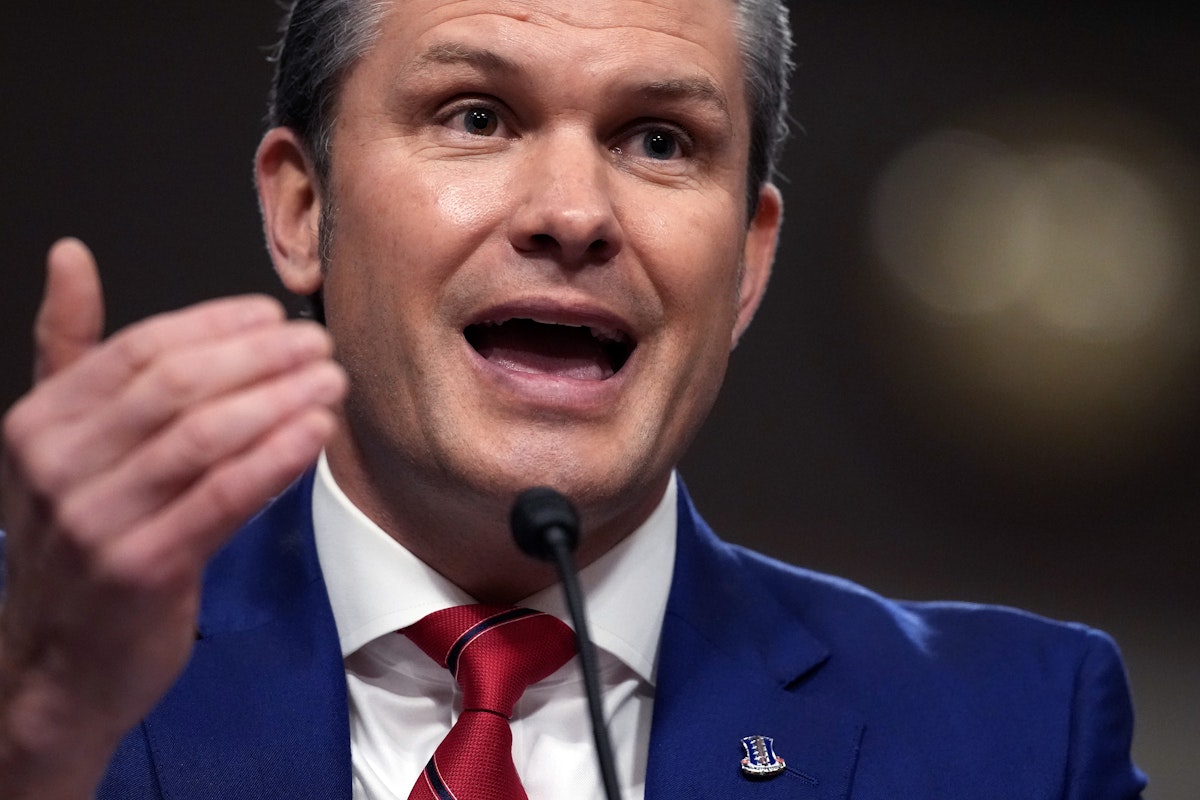 Reuters
ReutersSouth Korea’s Yoon Suk Yeol became the country’s first sitting president to be arrested, ending a weeks-long standoff between investigators and his personal security.
Yoon, whose failed attempt to impose martial law plunged the country into turmoil and was impeached by Parliament, is under investigation for insurrection.
However, he technically remains president, as a constitutional court must decide whether his impeachment is valid.
Investigators used ladders and wire cutters in freezing cold to reach Yoon, whose Presidential Security Service (PSS) personnel had erected barricades to try to prevent his arrest.
The 64-year-old leader said he agreed to appear before the Corruption Investigation Office (CIO). to avoid a bloodbath.
In a three-minute video message, Yoon said he would comply with the investigation against him even if he was opposed to it.
He has always maintained that the arrest warrant issued against him was not legally valid.
Yoon said he witnessed how authorities “invaded” the security perimeter of his home with fire equipment.
“I have decided to appear before the IOC, even though it is an illegal investigation, in order to avoid any unsavory bloodshed,” he said.
More than 1,000 police officers were involved in Wednesday’s dawn operation, which marked the second time officers had attempted to arrest him.
The IOC investigating Yoon, previously tried to arrest him on January 3.
They obtained the warrant after he ignored several summons to appear for questioning.
Yoon’s People Power Party called his arrest “illegal,” while its leader Kweon Seong-dong called Wednesday’s events “regrettable.”
On the other hand, opposition Democratic Party leader Park Chan-dae said Yoon’s arrest showed that “justice in South Korea is alive.”
This arrest “is the first step towards the restoration of constitutional order, democracy and the rule of law”, he declared during a party meeting.
The country is currently led by Finance Minister Choi Sang-mok as acting president. He was brought to power after the first acting president, Han Duck-soo, was also deposed by an opposition majority parliament.
 Reuters
ReutersAfter being questioned on Wednesday, Yoon is expected to be detained at the Seoul detention center in Uiwang, Gyeonggi Province, about 5 km from the IOC office.
However, if a court does not issue an arrest warrant within 48 hours of Yoon’s arrest, he will be released and free to return to the presidential residence.
Although the arrest of a sitting president is notable for South Korean politics, the country’s political crisis is far from over. This is just another phase of an ongoing political drama.
The crowd gathered outside Yoon’s home Wednesday morning highlighted the deep divisions in the country.
The anti-Yoon crowd clapped, clapped and chanted a song of “congratulations and celebrations” as his arrest was announced.
The atmosphere is completely different on the other side.
“We are very upset and angry: the rule of law has collapsed,” one Yoon supporter told the BBC.
The standoff also pitted two branches of the executive branch against each other: law enforcement officers, armed with a legal arrest warrant, and presidential security agents, who said they had a duty to protect the suspended president.
Even before his declaration of martial law, Yoon had been reduced to a lame-duck leader as the opposition party held a majority in Parliament.
He is also facing controversy over his wife since receive a Dior bag as a gift.



